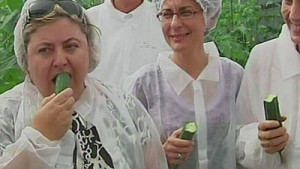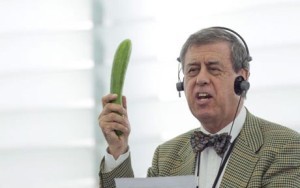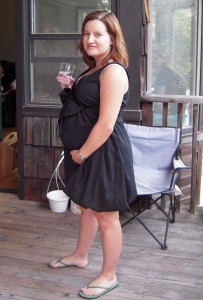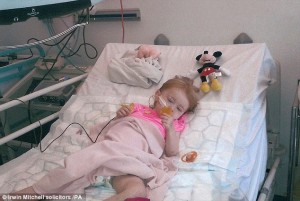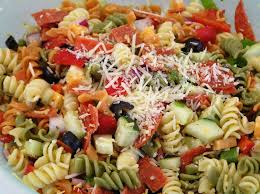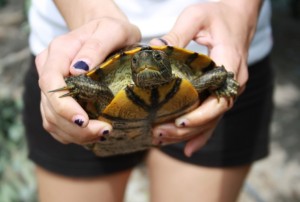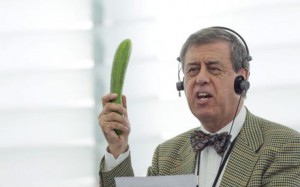Elizabeth Meltz, Director of Environmental Health for Batali & Bastianich Hospitality Group (B&BHG), writes on Mario Batali’s blog that even for a healthy person, food poisoning sucks. If you are remembering the last time you had it and thinking it wasn’t that bad, you are lying to yourself. (The joke goes: First you are afraid you’re going to die and then you are afraid you are not going to die.) For a person with a compromised immune system of any kind, it could truly mean death.
 Another common part of my job is following up with the (very few) complaints of foodborne illness we might get from guests. It is very difficult for anyone (myself included) to ascertain what made them sick and when. Incubation periods, and correspondingly, onset times for the most common food forms of foodborne illness: Staphylococcus auerus, E. coli, Salmonella, etc. vary greatly. Salmonella, the most common cause of food borne illness, has an average onset time of 18 to 36 hours. So though people usually assume it was the last thing (or place) they ate that made them sick, it quite often is not.
Another common part of my job is following up with the (very few) complaints of foodborne illness we might get from guests. It is very difficult for anyone (myself included) to ascertain what made them sick and when. Incubation periods, and correspondingly, onset times for the most common food forms of foodborne illness: Staphylococcus auerus, E. coli, Salmonella, etc. vary greatly. Salmonella, the most common cause of food borne illness, has an average onset time of 18 to 36 hours. So though people usually assume it was the last thing (or place) they ate that made them sick, it quite often is not.
My job and my personal life made a head on collision last week. My father had a successful lung transplant a year and a half ago. He had a rare condition called pulmonary fibrosis, for which there is no other treatment. He was cleared for travel in the spring and wanted to celebrate by torturing us all with a family trip to Madrid. My husband, Alex, who also works for B&BHG, made lunch and dinner reservations for every day at a Michelin-starred chef’s latest outpost, or some other highly recommended haunt. We had every must-eat place in Madrid on our schedule.
We ate so well I thought I would die; around 1a.m. on Jan. 1, I really did think I would. I had been complaining of nausea since we finished dinner around 11pm. My mom just kept saying we had been eating too much, but I knew something was wrong. And then — I will spare you the details — I was lying on the bathroom floor, well aware that I officially had food poisoning. I was only the first to fall. My mom was sick within the hour and Alex was in writhing pain by 2a.m.
I was panic-stricken. If my dad gets sick, he could die. He’s on all kinds of immunosuppressant medication and his body can’t handle a bacterial or viral infection of any kind. I’m half moaning, half yelling to my mom in the other room, “Put dad on a plane now please!” I think she thought I was in a feverish state, which I was, but I was serious. He was still not sick, and neither was my brother, which gave me hope, but I was terrified.
Because the thought of food made me want to throw up more, I was struggling to go through what we had all eaten in the past few days to see what commonalities I could find to identify the culprit. Because of my dad’s condition, he doesn’t eat anything that’s raw, including vegetables, so that made the tuna tartar a good candidate. However Daniel, my brother, had eaten some of the tartar — maybe he just had a stronger immune system? The tartar was rolled into five separate piles, maybe his pile was handled differently?
So I spent New Year’s Eve in Spain in a pool of sweat, fighting back vomit as I pondered what made me sick and hoping my dad doesn’t die.
But I’m OK with this now. My dad didn’t get sick and die. And though I could have done without the refresher, it strengthened my resolve and reminds me of why we do what we do. No one, not even the healthiest person, should spend any night projectile vomiting. And no one should have to worry about taking a life or death chance when they walk into one of our restaurants.
 The food items identified through the questionnaires as the most probable source of the infections was shrimp. This product was unique in showing a statistically significant and the highest OR with a value of 7.59 (1.52–37.71).
The food items identified through the questionnaires as the most probable source of the infections was shrimp. This product was unique in showing a statistically significant and the highest OR with a value of 7.59 (1.52–37.71).
